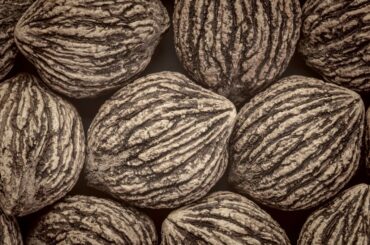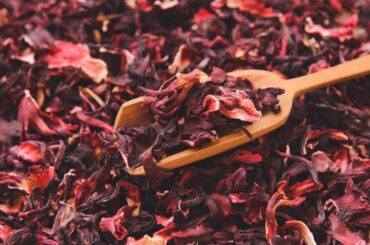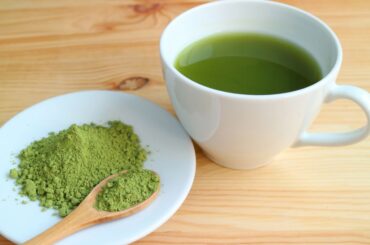How do you make Assam milk tea at home? Did you know that Assam tea, renowned for its robust and malty taste, originates from the lush valleys of Assam, India? Imagine bringing a piece of that heritage into your daily routine with a homemade cup of Assam milk tea.
This step-by-step guide is perfect for tea enthusiasts and anyone looking to elevate their tea-drinking experience. This post is for busy professionals looking for a calming drink, homemakers exploring new recipes, and tea enthusiasts. Let’s enjoy learning how to make the finest Assam milk tea.
What is Assam Milk Tea?

Assam is known for its beautiful tea gardens that produce some of the world’s best tea. Our rich tea culture, where tea is a way of life, is the basis of Assam milk tea. Many tea selections are available, but Assam milk tea is a local favorite for its robust flavor and refreshing scent.
One of the most iconic places where Assam milk tea has carved its niche is the bustling streets of Assam itself. However, its fame extends far beyond the region, reaching tea enthusiasts worldwide.
From small tea carts to modern cafes, Assam milk tea’s strong flavor has won over palates. It is a favorite among people seeking a delicious and authentic tea experience across cultures.
Assam milk tea, also known as “Assam chai,” is a harmonious blend of bold Assam black tea leaves and creamy milk. The malty, sharp tea leaves provide a solid base, while milk lends velvety smoothness.
The result is a flavorful brew that strikes a perfect balance between strength and indulgence. This tea, often sweetened, is a sensory treat that leaves a lasting effect.
To savor the essence of Assam milk tea, one must master the art of brewing. The tea leaves, carefully selected for their quality, are steeped to perfection, releasing their full-bodied flavor. Fresh, local milk adds richness to the tea, capturing Assam’s friendliness.
What Does Assam Milk Tea Taste Like?
Known for its rich, malty flavor, this mix is strong without being overwhelming. The coppery infusion of Assam tea leaves, embraced by the velvety caress of milk, crafts a harmonious symphony. A sip leads you through a journey of deep, earthy notes tinged with a subtle sweetness that lingers on the tongue.
What is Assam Milk Tea Good for?
Its unique blend of Assam black tea leaves and milk makes a delicious drink with antioxidants. Regularly drinking Assam milk tea may lower cholesterol and enhance heart health. The tea’s moderate caffeine content offers a gentle energy boost, improving alertness and mental focus.
Assam Milk Tea Ingredients
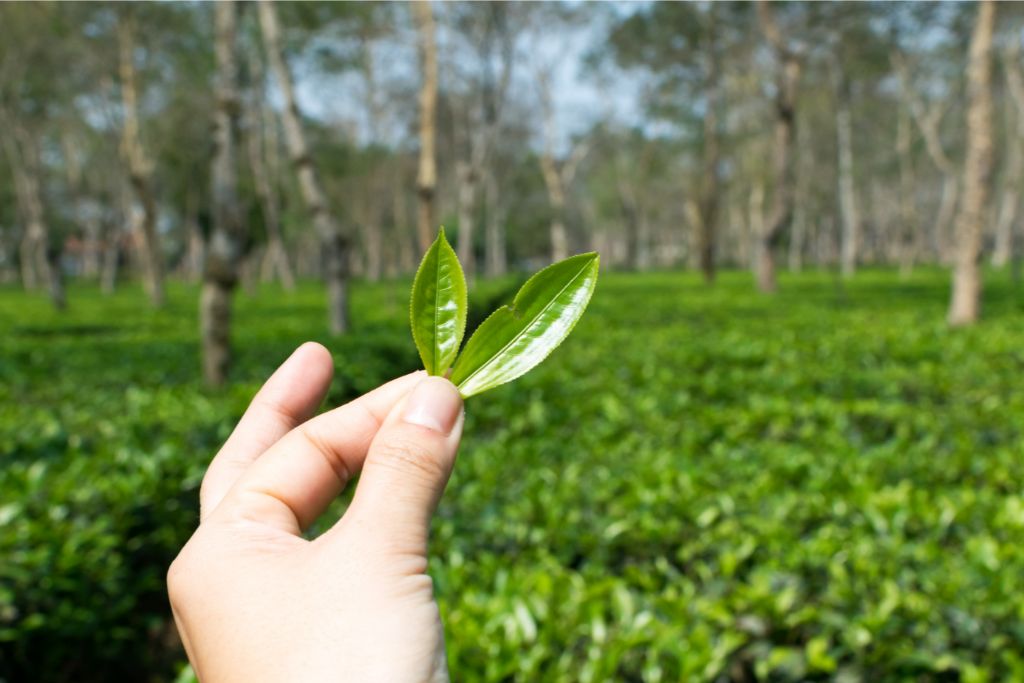
Steeped in rich history and bold flavors, Assam milk tea is a beverage that captivates the senses. Let’s explore the Assam milk tea recipe and its essential ingredients.
1. Assam Tea Leaves
The heart of the brew, Assam tea leaves, imparts a robust and malty character to the tea. Opt for high-quality loose leaves for an authentic experience.
2. Milk
Velvety milk adds a creamy texture, balancing the robustness of Assam tea. Whether you choose dairy or plant-based alternatives, the choice is yours.
3. Water
On the canvas on which the tea masterpiece is painted, water should be fresh and preferably soft. Ensure a clean taste by using filtered water.
4. Sweetener (Optional)
Tailor the sweetness to your liking with sugar, honey, or another sweetener of your choice. This step is optional, allowing you to personalize your tea experience.
5. Spices (Optional)
For an extra layer of complexity, consider adding spices, like cardamom or ginger. This step is optional but can elevate your Assam milk tea to new heights.
6. Ice Cubes (Optional)
If you prefer your tea chilled, adding ice cubes is a refreshing choice. This optional step transforms your Assam milk tea into a cooling beverage, perfect for warm days.
How to Prepare Assam Milk Tea
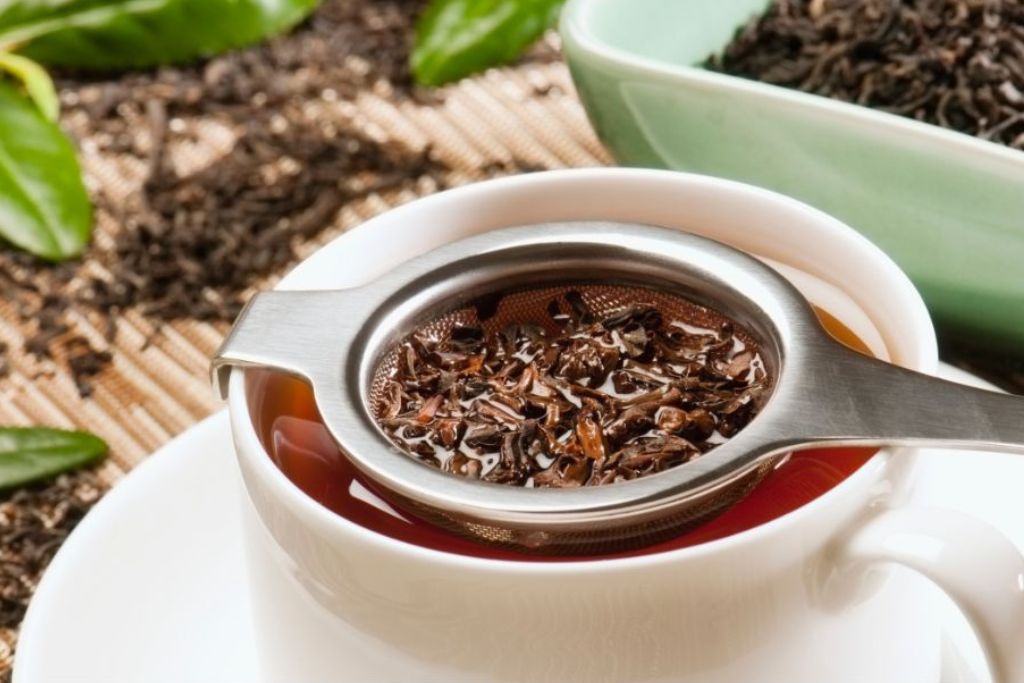
With this easy guide, you can get the full, rich taste of Assam milk tea.
1. Select Quality Assam Tea Leaves
Choose high-quality Assam tea leaves for a rich and robust flavor. The freshness of the leaves dramatically influences the taste of your tea.
2. Measure Tea Leaves
Take one teaspoon of Assam tea leaves per cup. Adjust the quantity based on your preferred strength, keeping in mind that Assam tea is known for its bold flavor.
3. Boil Fresh Water
Bring fresh, cold water to a rolling boil. The temperature is crucial, so aim for around 194-203°F (90 to 95℃). Avoid using water that has been sitting for too long, as it can affect the taste.
4. Add Tea Leaves to the Pot
Place the measured Assam tea leaves into a teapot. This allows the leaves to open properly and release their full flavor.
5. Pour Boiling Water Over Tea Leaves
Carefully pour the hot water over the tea leaves in the teapot. Ensure that the leaves are fully immersed. Let it steep for about 3 to 5 minutes for a perfect infusion.
6. Strain the Tea
After steeping, use a fine mesh strainer or a tea infuser to strain the tea leaves as you pour the brewed tea into your cup.
7. Add Milk
To achieve the authentic Assam milk tea experience, add a generous amount of milk to your brewed tea. The creamy texture complements the robustness of the Assam tea.
8. Sweeten to Taste
Add sugar or sweetener according to your preference. Stir well to ensure it blends evenly with the tea and milk, creating a harmonious flavor.
9. Enjoy!
Savor the exquisite blend of Assam tea and milk. Whether you’re starting your day or taking a relaxing break, Assam milk tea provides a delightful and refreshing experience.
Tips for Making Assam Milk Tea
Elevate your tea experience with these expert tips for brewing the perfect cup of Assam milk tea.
Optimal Brewing Time
To unveil the full-bodied character of Assam milk tea, let it steep for precisely 3 to 5 minutes. This time allows the powerful Assam tea leaves to release their essence, creating a strong, deep cup. Remember, patience is the key to perfection.
Rinse the Tea Leaves
Before indulging in the brewing process, rinse your Assam tea leaves with a splash of hot water. This ritual not only cleanses the leaves but also jumpstarts the release of their distinct flavors. By taking this extra step, you set the stage for a tea experience that is unparalleled in richness and complexity.
Milk Temperature
When incorporating milk into your Assam milk tea, ensure it’s warm but not scalding. Gently heat the milk to around 150°F (65℃) before blending it with the brewed tea. Each sip of Assam tea brings forth its full flavor due to this careful attention to detail.
Water Quality Matters
Use fresh, cold water when brewing your Assam milk tea. High-quality water brings out the genuine flavors of tea leaves, making for a cleaner, more vibrant cup.
Measure with Precision
Achieve tea perfection by measuring your Assam tea leaves accurately. Use one teaspoon of loose leaves for every 8 ounces of water. This precise ratio guarantees a well-balanced infusion that captures the essence of Assam tea.
Experiment with Sweeteners
Try honey, agave, or brown sugar to sweeten your Assam milk tea. Adjust to taste, balancing the boldness of the tea with the desired level of sweetness.
Embrace the Ritual
Creating the perfect cup of Assam milk tea is not just a process; it’s a ritual. Take a moment to savor the aromas, appreciate the deep amber hue, and indulge in the rich taste. The experience is as important as the outcome.
Assam Milk Tea Nutritional Facts
It’s crucial to be mindful of what goes into this popular beverage. In a standard serving:
- Calories: 50 cal
- Carbohydrates: 10 g
- Protein: 1 g
- Fat: 2 g
- Saturated Fat: 1 g
- Cholesterol: 0 g
- Sodium: 20 mg
- Potassium: 80 mg
- Sugar: 5 g
- Calcium: 100 mg
Disclaimer: Preparation and ingredients affect nutritional content. Sweeteners and high-fat milk add calories and sugar to Assam milk tea, so drink moderately. Despite this, the beverage is rich in antioxidants, offering potential health benefits.
Assam Milk Tea Benefits
Assam milk tea is a tasty treat with many health advantages. Here are eight reasons why sipping on this aromatic beverage can make a positive impact on your well-being.
Lower Cholesterol
Savoring Assam milk tea can play a role in maintaining healthy cholesterol levels. It supports your heart’s well-being and overall cardiovascular health.
Reduced Risk of Cancer
Regular consumption of Assam milk tea has been associated with a decreased risk of certain cancers. It offers a tasty way to enhance your body’s defense against potential threats.
Support Immune Function
Assam milk tea’s ingredients work together to boost your immune system’s resistance against common ailments.
Promote Brain Health
The cognitive benefits of Assam milk tea are that it may improve brain function and mental alertness.
Improves Skin Health
Revel in radiant skin by making Assam milk tea a part of your routine; its antioxidants may contribute to a healthier complexion.
Warms up the Body
Not just a delightful beverage, Assam milk tea can also warm you up from the inside, providing comfort and relaxation.
Heals Tooth Cavity
Surprisingly, Assam milk tea has properties that may aid in healing tooth cavities. This makes it a unique addition to your oral care routine.
Improves Cognitive Function
Assam milk tea strengthens mental clarity and attention, making it a tasty midday pick-me-up.
FAQs
What Kind of Tea is Assam Tea?
The Indian state of Assam produces black Assam tea. Its strong, malty flavor and deep amber hue make it famous.
Is Assam Tea the Strongest Tea?
Due to its high Assam milk tea caffeine concentration and rich, full-bodied flavor, Assam tea is one of the strongest black teas. However, strength can also depend on factors like brewing time and leaf grade.
Why is Assam Tea Bitter?
Due to its high tannin content, Assam tea can be bitter, depending on season, temperature, and processing. Brewing for too long or using high temperatures can also contribute to bitterness.
What Makes Assam Tea Unique?
Assam tea is unique for its distinctive characteristics, including a strong, malty flavor and a robust body. The tea is grown at lower elevations, and the region’s tropical climate contributes to its unique profile.
Why is Assam Tea Expensive?
Several factors contribute to the cost of Assam tea. Large-scale tea production needs a lot of labor, and flood-prone locations require careful cultivation. The distinct flavor and high demand for Assam tea also contribute to its relatively higher price compared to other teas.


